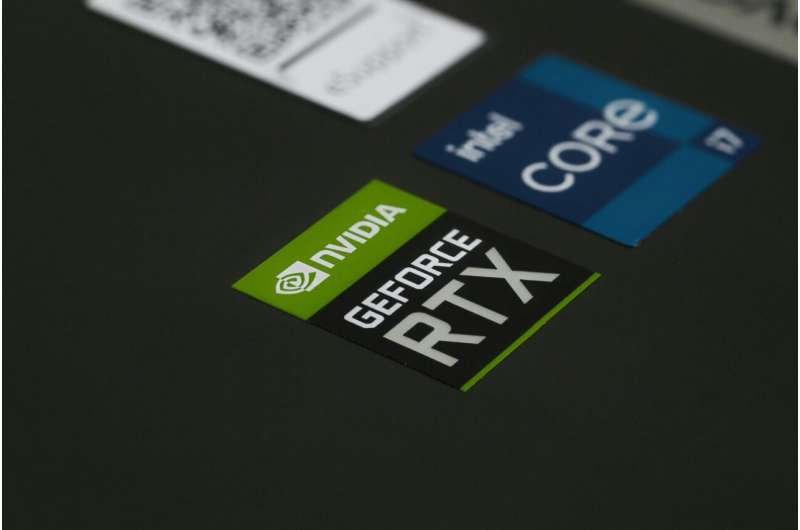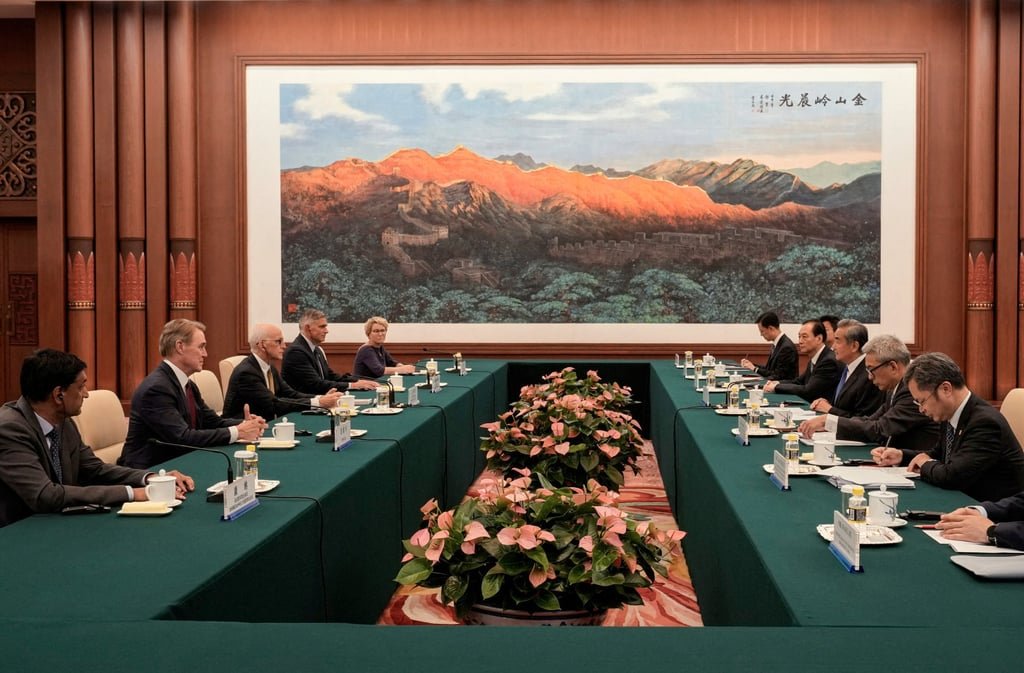“If you come up with a potential weapon of mass destruction, you probably want to keep that a bit quiet in the hope that it will find a way to be economically meaningful and not blow up.”

By Doug Young & Rene Vanguestaine
In the crucible of a challenging economy, two Chinese technology firms are charting divergent, yet equally fascinating, paths toward reinvention. One, a supply chain financier named Linklogis (9959.HK), is quietly delving into the world of asset virtualization to manage risky assets. The other, online dating giant Hello Group (MOMO.US), is deploying artificial intelligence as a modern-day Cyrano de Bergerac to help shy singles find love. These are potent examples of a broader trend where established companies, facing significant headwinds, are turning to novel technologies not for hype, but for survival and growth.
Linklogis, a company that helps small suppliers get financing based on unpaid bills from their larger clients, has embarked on a venture that is both technically sophisticated and fraught with peril. It has formed a partnership with XRP Ledger, owner of the ripple cryptocurrency, to “tokenize” these unpaid bills, or receivables. The goal is to convert these IOUs into digital assets that can be easily traded on a blockchain, presumably making them more liquid.
Yet, what we find most telling is the company’s low-key approach. In an era where many firms shout their virtual asset ambitions from the rooftops to ignite a stock rally, Linklogis disclosed its deal on an obscure newswire, leading to a muted market reaction. This quietude is significant. We believe it signals a deep-seated uncertainty within the company about where this experiment will lead.
The endeavor immediately brings to mind a troubling precedent: the collateralized debt obligations (CDOs) that were central to the 2007-2009 global financial crisis. While blockchain technology itself is a secure ledger for tracking ownership, the fundamental issue remains over the quality of the assets being tokenized. What, exactly, is being put into this new digital wrapper?
There are good receivables, which are paid reliably in 30 to 90 days. But there are also receivables that have been outstanding for 180 days or longer — the kind that may never be paid. This move appears to be a classic case of a financial intermediary growing to a point where it must offload risk. The critical question is whether Linklogis will package its best assets, its worst assets — its “lemons” — or a sliced-and-diced mixture of both. By supposedly reducing the risk for everyone, such slicing and dicing could, as with CDOs, obscure the danger until it’s too late.
From a shareholder’s perspective, offloading risky assets with no recourse could be a savvy move to boost the company’s performance. But for the broader financial system and the investors who might buy these tokens — perhaps without fully understanding the underlying risk — it’s a different story. The company’s caution suggests it is well aware it is handling a “potential weapon of mass destruction” and hopes it can be tamed for economic gain without blowing up.
AI as Cyrano de Bergerac
On a completely different front, we see another form of high-tech experimentation aimed at solving a very human problem. Hello Group, operator of China’s leading dating app Momo, is grappling with five straight years of falling revenue. Its business model, which relies heavily on users buying virtual gifts for their romantic interests, is under pressure as young Chinese, facing economic insecurity, cut back on such discretionary spending.
The company’s answer is a clever application of artificial intelligence, a sort of 21st-century take on the classic French play Cyrano de Bergerac. A new function uses AI to suggest icebreakers and conversation topics for tongue-tied young men, many of whom have limited dating experience due to a traditional focus on academics. The company is betting that by helping users overcome their initial shyness, it can get them “in the game.”
We believe this feature could be a game-changer. There is a real social phenomenon of reticence among young men in China when it comes to dating. If AI can help them engage more successfully, they may become more invested in the “game” and, consequently, more willing to spend on the virtual gifts that drive Hello Group’s revenue. We see a parallel in the video game industry, where players readily spend money on in-game items to gain an edge and win. This AI feature could be the missing piece that unlocks a similar willingness to spend in the dating world.
Of course, the strategy is not without risks. If female users begin receiving the same AI-generated opening lines, the novelty will quickly wear off. However, today’s generative AI may be sophisticated enough to avoid such repetition. The larger challenge remains the tough economic climate for highly discretionary spending.
Still, there are bright spots for Hello Group. While its domestic business struggles, the company has found impressive growth in overseas markets, particularly the Middle East, which is helping to offset some of the declines at home. The AI-powered dating assistant, rolled out in the second quarter, is a fascinating attempt to tackle the core issue of user engagement head-on.
Ultimately, both Linklogis and Hello Group offer a compelling look at how Chinese companies are innovating under pressure. One is using blockchain to re-engineer financial risk, while the other is using AI to re-engineer social interaction. The outcomes of these experiments are far from certain, and as with any venture into uncharted territory, time will be the ultimate judge.
About China Inc
China Inc by Bamboo Works discusses the latest developments on Chinese companies listed in Hong Kong and the United States to drive informed decision-making for investors and others interested in this dynamic group of companies.
Subscribe to China Inc on your favorite app:






